
The Constitution of the Republic of Croatia is promulgated by the Croatian Parliament.
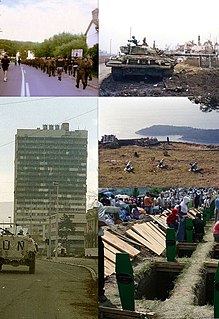
The Yugoslav Wars were a series of separate but related ethnic conflicts, wars of independence and insurgencies fought in the former Yugoslavia from 1991 to 2001, which led to the breakup of the Yugoslav state. Its constituent republics declared independence, despite unresolved tensions between ethnic minorities in the new countries, fueling the wars.
The Helsinki Committees for Human Rights exist in many European countries as volunteer, non-profit organizations devoted to human rights and presumably named after the Helsinki Accords. Formerly organized into the International Helsinki Federation for Human Rights (IHF) based in Vienna.

The Democratic Union of Hungarians of Croatia is a Croatian non-governmental organization that represents the Hungarian minority. It was established in 1993, and is headquartered in Osijek.
Katarina Kruhonja is a peace activist from Osijek, eastern Croatia. She is a director of the Centre for Peace, Non-violence and Human Rights, an NGO based in Osijek, set up with the support of Adam Curle. In 1998, she was joint recipient of the Right Livelihood Award along with Vesna Terselic of the Anti-War Campaign of Croatia.
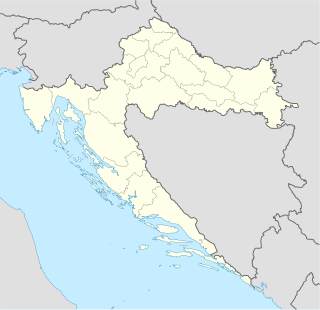
The 1991 riot in Zadar was an act of violence that took place in the Croatian city of Zadar on 2 May 1991. Following an incident in the Zadar hinterland in which a Croatian policeman was killed, reportedly by SAO Krajina militiamen, Croatian civilians vandalized, destroyed and looted properties belonging to ethnic Serbs and Yugoslav companies in the city.
Human rights in Croatia are defined by the Constitution of Croatia, chapter three, sections 14 through 69.
The Constitution of Bosnia and Herzegovina is the highest legal document of Bosnia and Herzegovina. The current Constitution is the Annex 4 of The General Framework Agreement for Peace in Bosnia and Herzegovina, also known as the Dayton Agreement, signed on 14 December 1995. The Constitution saw the end of war in Bosnia and Herzegovina, however it has seen a large amount of criticism. Under the supervision of international community, an "arrangement of amendments" to the Constitution, agreed upon by leading political parties, was proposed for adoption in the Parliamentary Assembly of Bosnia and Herzegovina in April 2006, but it failed to get the approval of two-thirds of members in the House of Representatives.
The Croatian Helsinki Committee for Human Rights is an organisation founded to protect and promote human rights in Croatia. It was founded on 31 March 1993, first as a branch of the International Helsinki Federation, and, since 14 April 2003, as a local NGO under Croatian law, by independent intellectuals, artists, lawyers, and journalists committed to the protection and promotion of human rights.

The Croatian nationality law dates back from June 26, 1991. It is based upon the Constitution of Croatia. It is mainly based on Jus sanguinis.
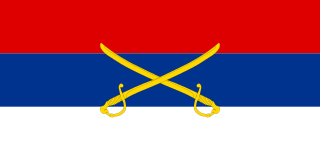
The Serbian Army of Krajina, also known in English as the Army of the Republic of Serb(ian) Krajina, was the armed forces of the Republic of Serbian Krajina (RSK), a Serb breakaway state in Croatia during the Croatian War of Independence (1991–95). The army was officially established on 19 March 1992. The RSK covered an area of some 17,028 km² at its peak, and was located entirely inland and thus had no navy. The military, along with the self-proclaimed Republic of Serbian Krajina, dissolved in 1995 following the Croatian Operation Storm.
United Nations Security Council resolution 1019, adopted unanimously on 9 November 1995, after recalling resolutions 1004 (1995) and 1010 (1995) on the situation in Bosnia and Herzegovina and 1009 (1995) concerning Croatia, the Council discussed violations of international humanitarian law in the former Yugoslavia.

The Bijeljina massacre involved the killing of between 48 and 78 civilians by Serb paramilitary groups in Bijeljina on 1–2 April 1992 during the Bosnian War. The majority of those killed were Bosniaks. Members of other ethnicities were also killed, such as Serbs deemed disloyal by the local authorities. The killing was committed by a local paramilitary group known as Mirko's Chetniks and by the Serb Volunteer Guard, a Serbia-based paramilitary group led by Željko Ražnatović. The SDG were under the command of the Yugoslav People's Army (JNA), which was controlled by Serbian President Slobodan Milošević.
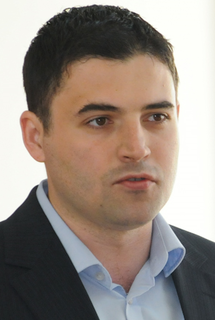
In Croatia, the Opposition comprises all political parties represented in the Croatian Parliament that are not part of the Government which is supported by the parliamentary majority.

The Serb National Council is elected political, consulting and coordinating body acting as a form of self-government and institution of cultural autonomy of Serbs of Croatia in matters regarding civil rights and cultural identity. Council main focuses are human, civil and national rights, as well the issues of Serbs of Croatia identity, participation and integration in the Croatian society.

Following the beginning of the Yugoslav wars, especially the War in Croatia in 1991, members of Serbian Radical Party and Serbian Chetnik Movement have been accused to have conducted a campaign of intimidation and persecution of Croats of Serbia in Vojvodina, Serbia, through hate speech and threats by various parties, including by the ICTY and United Nations Commission on Human Rights. These acts forced a part of the local Croat population to leave the area in 1992. Most of them were resettled in Croatia. The affected locations included Hrtkovci, Nikinci, Novi Slankamen, Ruma, Šid, and other places bordering Croatia. According to some estimates, around 10,000 Croats left Vojvodina in 1992.

Serb Democratic Forum is a non-governmental organization of Serbs of Croatia, which in cooperation with national and international organizations and institutions, protects human rights, minority rights, develops and promotes inter-ethnic tolerance and understanding and tries to restore mutual trust and respect.
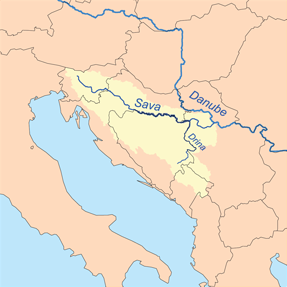
Posavina is the Slavic name for the region of the Sava river basin in Slovenia, Croatia, Bosnia and Herzegovina, and Serbia that is adjacent or near the Sava river itself.














